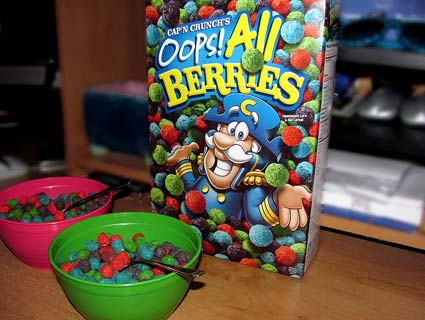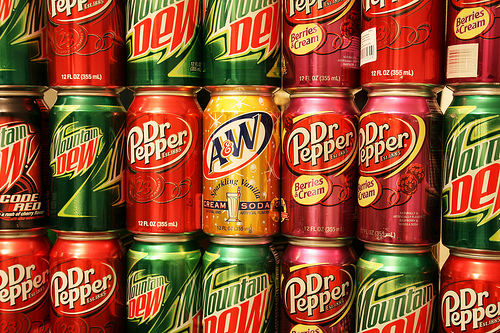
<a href="http://flickr.com/photos/gothicgirl/4377594401/">EvilShenanigans</a>/Flickr
As I sit down to write this post, I’m munching on a chocolate-orange cookie, something I grabbed to get me through a mid-morning energy slump. Packed with processed sugar, this treat could be considered just some empty calories I burn off as long as I take a rigorous walk at lunch or practice yoga after work. But scientists from the University of California–San Francisco, whose article “The Toxic Truth About Sugar” came out yesterday in Nature, are hoping to change this mindset. “There is nothing empty about these calories,” they write, arguing that a growing body of evidence places the blame of the worldwide increase in chronic diseases such as liver toxicity, obesity, and pancreatitis squarely on the shoulders of this pervasive ingredient.
If UCSF researcher Robert H. Lustig and his team had their way, sugar would be regulated similarly to alcohol and tobacco, and would be knocked off of a USDA list of foods “Generally Regarded as Safe (GRAS),” which allows food manufacturers to add unlimited amounts to any food. Using four criteria established in 2003 to justify regulating alcohol, these scientists make a case for why sugar is a public health concern and should be regulated:
- Sugar is unavoidable: In recent years, it is being added to almost all processed foods. Even if I avoid cookies and desserts, for example, and I think I’m controlling my intake, I’m probably still taking in more sugar than what’s necessary through processed snacks, bread, condiments, and beverages. According to the USDA (PDF), the average American ate the equivalent of 52 teaspoonfuls of sugar a day in 2000, compared to the 10 teaspoonful daily maximum recommended. Per capita consumption was up 39 percent from the 1950s.
- It’s toxic: The paper maintains that excessive consumption of sugar affects health beyond just adding empty calories. The food has been linked to metabolic dysfunction and its ensuing diseases, and Lustig asserts that fructose (one of two molecules that along with glucose makes up sugar) can have the same impact on the liver as alcohol. For more on fructose, read my coworker Kiera Butler’s piece on sugar versus corn syrup. Also, see Gary Taubes’s article on sugar’s toxicity, which features Lustig, in the New York Times magazine last spring.
- It’s addictive: This claim appears a little extreme (hard to imagine a group called Sugarholics Anonymous), but the paper cites various studies that examine human dependency on sugar. The sweetener dampens the suppression of hormones that signal hunger and satisfaction to the brain, so the more we eat, the less likely we are to realize when we’ve had enough of the stuff, and the more likely we are to want more.
- Sugar has a negative impact on society: It’s been linked to metabolic dysfunction, which can lead to heart disease, obesity, liver disease, and diabetes. In 2011, the United Nations declared that for the first time ever, chronic non-communicable diseases like these posed a greater burden on the world than infectious diseases. A 2011 University of Minnesota study linked the uptick in sugar consumption over the last 30 years to an increase in average body weight. Currently, seventy-five percent of all US health-care dollars are spent on treating metabolic syndrome and its resulting diseases.
So what’s to be done to curb our demand for sugar? The pie in the sky solution for the UCSF scientists is to get food manufacturers to stop adding it to everything under the sun. “But sugar is cheap, sugar tastes good and sugar sells, so companies have little incentive to change,” write Lustig and crew. Another solution is to make it less accessible by taxing it. Denmark is considering a sugar tax, and the United States may soon start taxing sugary sodas per ounce.
But the idea of regulating sugar is going to face plenty of protest from the massive sugar lobby, something that Lustig and colleagues recognize. Taking hope from the success public health officials have had in fighting the tobacco lobby and regulating smoking in places nationwide, the UCSF researchers are optimistic about the government’s ability to take on sugar like it has taken on smoking.
















